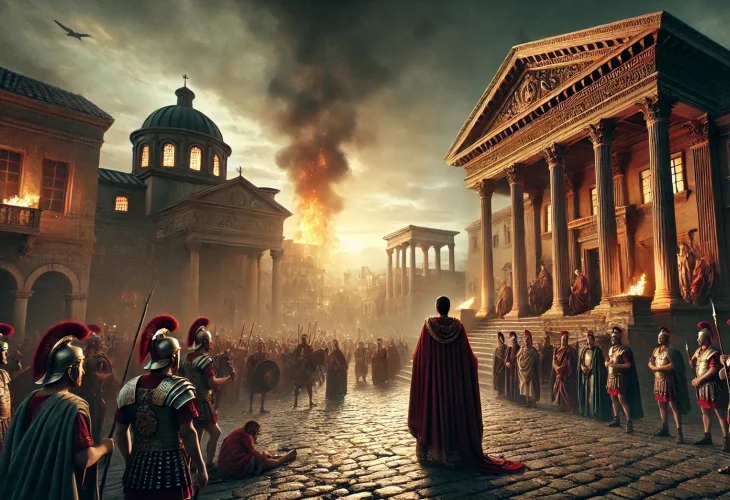The Day the Temple Almost Rose Again: What Really Happened?
With hopeful hearts, the Jewish people put their dreams into action: digging foundations and laying a cornerstone. On May 19th, during joyous song, praise, and dance, work began to rebuild the Temple.

"The God of the Jews is truly the mightiest and the best, ruling this world, and as far as I'm aware, we all serve Him, even if by different names," wrote a Roman emperor. This was Emperor Julian, a writer, philosopher, and author of numerous books. Christians dubbed him "Julian the Apostate" for his persecution of Christianity, outlawing it, and even composing a book against it titled "Against the Galileans" (since their messiah hailed from Nazareth in Galilee).
In 361 CE, Constantius II died amid battles against the Germans. He passed away from exhaustion, and with his last strength, declared his desire for Julian to succeed him. Julian, then governor of Gaul (modern-day France), assumed the empire's leadership by winning a brilliant battle in Strasbourg (known then as Argentoratum) against the Alemanni tribes. With a genius military maneuver, he defeated them, becoming a celebrated hero.
His uncle, Constantine the Great, had spread Christianity throughout the empire, and Julian attempted to reverse the process. As a young boy, he was nearly executed for heresy against Christianity. His familial ties as the emperor's nephew spared him, allowing him to live a double life: outwardly Christian, but secretly studying Greek philosophy.
Upon ascending the throne, he dedicated himself to combatting Christianity. Initially, he executed many members of the imperial court in Constantinople, and then brought together intellectuals to discuss sacrifices. Christianity claimed that the Creator had no desire for sacrifices, whereas all others believed otherwise. After thorough deliberation, they agreed that sacrifices were desired by the Creator and that Christians were mistaken. Julian decreed that Christians were banned from teaching across the empire's schools since they preached against sacrifices.
Julian moved the imperial palace from Christian Constantinople to Antioch, but there too, he found a large Christian community. As he glorified ancient Roman temples, a mysterious fire broke out, damaging them. Julian, infuriated, closed all churches in the city and harshly punished Christians.
In debates with Christians, they claimed validation of their faith by pointing to their messiah's prophecy about the destruction of the Jewish Temple and the end of sacrifices. Julian asked Antioch's Jews if they wished to sacrifice again, to which they eagerly responded yes, limited only by their access to Jerusalem since Emperor Titus's time. Julian assured them that he would command the Temple's reconstruction, directing letters to Judea's officials and President Hillel II outlining the plan with a special Roman imperial budget.
Convinced that messianic times were nearing, Jews passionately undertook the project: digging foundations and laying a cornerstone. On May 19th, during songs, praise, and dances, Temple construction commenced. Some say the Amora Rabbi Acha in the Land of Israel blessed the endeavor. But suddenly, disaster struck: an earthquake shook the land, and the terrified Jewish builders fled. The emperor never resumed the plan. This day became a fast day henceforth, and Rabbi Acha proclaimed, "Blessed is He who rid us of Julian's disgrace."
That same month, Julian embarked on a campaign against the Persians. He aimed to defeat King Shapur (known in the Talmud as "Shapur Malka"). Roman troops marched to the royal city of Ctesiphon only to realize that no siege equipment was brought. Julian wandered along the Tigris River, and on June 26th, was caught off-guard by a Persian ambush. He left his tent to organize defense but forgot to wear armor. A lance struck him, and he died within hours. Christians claimed a Christian soldier from his own ranks threw the lance. Regardless, with Julian's death, Christianity reclaimed Roman dominance, and Jewish hopes of a return to Jerusalem faded as long as Christians ruled it.

